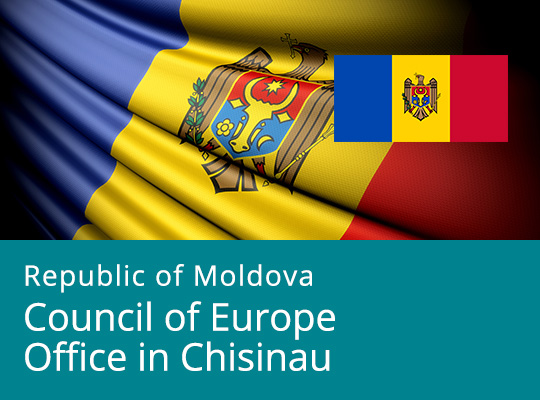Strengthening Institutional Frameworks for Local Governance Programme
Meetings and workshop on inter-municipal co-operation for solid waste management Adjara region, Georgia
A series of meetings and a workshop on inter-municipal co-operation (IMC) for solid waste management (SWM) took place in Batumi and Keda, Adjara region, on 19-21 September, with the support of the Centre of Expertise for Local Government Reform, DG-II, the Council of Europe. The activity...
Moldovan mayors: peer review for sustainable approaches to local democracy
Acting as “leaders for change”, mayors of Budesti, Costesti and Palanca shared the results of the local initiatives on ethical governance and transparency scheme supported by the Congress of Local and Regional Authorities, with fellow mayors from the Stefan Voda district. The exchanges served as...
Study visit on sharing inter-municipal co-operation experience
A delegation of representatives of central and local public authorities from Armenia, Georgia, Moldova and Belarus participated in a study visit in Bilbao (Spain) on 26-28 June 2017. The participants were acquainted with the Spanish experience in developing inter-municipal co-operation (IMC),...
Call for interest for national experts from Armenia, Georgia, Moldova and Ukraine to support local initiatives on ethical governance and transparency
The Council of Europe promotes local democracy and a culture of ethical and inclusive decision-making, as part of the thematic programme “Strengthening institutional frameworks for local governance” in the Eastern Partnership countries. In this context, 12 municipalities from Armenia, Georgia,...
Mayors and local councillors play a vital leadership role in promoting the principles of local democracy in their communities. The study takes an integral look at the execution of roles and functions of local elected representatives, the division and scope of their responsibilities, the situation of local finances and the quality of local democracy. It is developed with the aim to strengthen the local leaders in order for them to further contribute to the development of local democratic governance.
Reducing corruption risks, promoting citizen participation, and developing effective, accountable and transparent institutions at all levels are key components of just and inclusive societies. These country-specific handbooks provide practical guidance on transparency policies and citizen participation mechanisms, and identify the most prevalent corruption risks. They identify the relevant international standards and national legislation and provide case-law examples and best practices which local and regional authorities are recommended to promote and apply.
Through an approach involving in-depth interviews and desk surveys, with the support of local authorities and civil society organisations, this comprehensive overview sets out the main directions for improvement of citizen participation in Georgia. It is comprised of three parts: evaluation of the existing legal bases, description of the challenges and successes in practice, with regard to the implementation of existing mechanisms in practice, and recommendations to improve the current situation.
This tool provides step-by-step guidance for local authorities towards the successful assessment of local policies’ efficiency and effective management of change. It aims to support local public administrations in leading in a more informed manner, addressing the needs of their communities, and developing demand-driven and responsive policies.
Programme summary
The programme is being implemented by Council of Europe
Funding
This programme is funded by the European Union and co-funded by the Council of Europe
Expected results
- streamlining new by-laws in at least three beneficiary countries and to develop targeted recommendations;
- foster a more efficient, transparent and ethical governance at the local level in at least three beneficiary countries;
- develop and adapt the European standard local finance benchmarking tool to the specific countries so as to improve legislation and local regulations.
Objectives
To strengthen institutional frameworks for local governance in the Eastern Partnership countries
support the on-going process of reform of local government in participating countries
promote ethical behaviour by locally elected representatives of the region
support the improvement of financial and human resources management of local administrations based on European standards and benchmarking processes.
Main activities
Comparative studies on the role and responsibilities of mayors and councillors
Beneficiaries
local and regional authorities and their respective associations,
local and regional authorities and their respective associations,
ministries responsible for local self-government,
NGOs and citizens.




